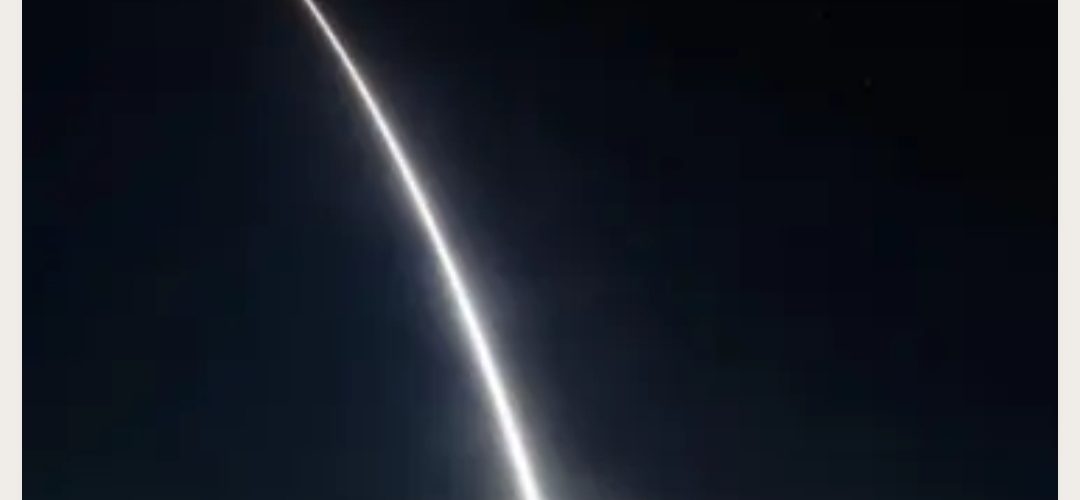China Calls U.S. Top ‘Nuclear Threat’ to World in Reply to Pentagon Report
A Chinese official told Newsweek that Beijing rejects the Pentagon’s characterization of growing People’s Liberation Army capabilities in a new report, arguing that it was the United States stirring nuclear tensions, not China.
The Department of Defense published its latest assessment on “Military and Security Developments Involving the People’s Republic of China” on Wednesday, making note of a number of observations, including a growing Chinese nuclear weapons and ballistic missile force……..CONTINUE READING
The report estimated that the People’s Liberation Army Rocket Force has already doubled its intercontinental ballistic missile (ICBM) force from 150 to 300 and would seek to nearly quadruple its nuclear warhead from a current count of somewhere above 400 to 1,500 by 2035.
But Liu Pengyu, spokesperson for the Chinese Embassy in Washington, D.C., argued that the report, “just like similar reports in the past, disregards facts and is filled with bias.”
“The U.S. is using this report to hype up the ‘China nuclear threat’ theory,” Liu said. “But this is manipulating rhetoric to confuse public opinion, which is seen through by the international community.”
“As a matter of fact, the top source of nuclear threat in the world is no other but the U.S. itself,” he added. “Despite possessing the world’s largest and most advanced nuclear arsenal, the U.S. is still investing trillions of dollars to upgrade its “nuclear triad,” developing low-yield nuclear weapons and lowering the threshold for using nuclear weapons.”
Minuteman, III, ICBM, launch, California, September, 2022
An Air Force Global Strike Command unarmed Minuteman III Intercontinental Ballistic Missile launches during an operational test on September 7 at Vandenberg Space Force Base, California. The Pentagon said that “ICBM test launches demonstrate that the U.S. ICBM fleet is relevant, essential and key to leveraging dominance in an era of strategic competition. Airman 1st Class Ryan Quijas/Space Launch Delta 30 Public Affairs/U.S. Air Force
The U.S. possesses a total of around 5,500 nuclear warheads, according to the Stockholm International Peace Research Institute (SIPRI) and around 5,428, according to the Federation of American Scientists (FAS). Both organizations estimate that approximately 1,744 of these warheads are currently deployed.
The nuclear arsenals of both the U.S. and Russia remain bound by the New Strategic Arms Reduction Treaty (New START). The accord marks the last remaining bilateral arms control deal between the world’s top two powers and critical mutual verification measures have been suspended amid tensions between Moscow and Washington.
When it comes to previous non-proliferation efforts, Liu noted how “the U.S. has withdrawn from legal instruments in arms control,” including the Anti-Ballistic Missile (ABM) Treaty scrapped by President George W. Bush in 2002 and the Intermediate-Range Nuclear Forces (INF) Treaty abandoned by President Donald Trump in 2019.
Liu asserted that Washington has, at the same time, “kept advancing the deployment of anti-missile systems around the world, resumed research and development and tests of intermediate-range land-based missiles and sought to deploy them in Europe and the Asia-Pacific, and formed a small clique with strong Cold War undertones through the AUKUS nuclear submarine cooperation.”
AUKUS was announced between Australia, the United Kingdom and the U.S. last year as a trilateral pact that included joint work on nuclear submarines.
“These U.S. moves gravely undermine global strategic stability and international peace and security,” Liu said. “China urges the U.S. to earnestly assume its special and primary responsibilities toward nuclear disarmament, and drastically and substantively reduce its nuclear stockpile in a verifiable, irreversible and legally-binding manner to uphold global strategic equilibrium and stability.”
As for China’s position, he said his country “stays firmly committed to a self-defensive nuclear strategy, actively advocates the ultimate complete prohibition and thorough destruction of nuclear weapons, and keeps its nuclear force at the minimum level required for national security.”
“China abides by the policy of no-first-use of nuclear weapons at any time and under any circumstances,” Liu said, “and undertakes unequivocally not to use or threaten to use nuclear weapons against non-nuclear-weapon states or nuclear-weapon-free zones unconditionally.”
The Chinese People’s Liberation Army Eastern Theater Command launches a Dongfeng short-range ballistic missile during exercises in this footage shared on August 10 amid heightened tensions in the wake of House Speaker Nancy Pelosi’s visit to Taiwan, a disputed island on the front line of deteriorating ties between Beijing and Washington. EASTERN THEATER COMMAND/CHINESE PEOPLE’S LIBERATION ARMY
The U.S. does not explicitly maintain a no-first-use policy and the latest Nuclear Posture Review released last month by the Pentagon appeared to leave room for a nuclear response to a conventional attack, noting “extreme circumstances” such as “a near-simultaneous conflict with two nuclear-armed states” in a reference to China and Russia.
A senior Pentagon official described the strategy at the time as one that “relies on nuclear weapons to deter all forms of strategic attack,” stating that “this includes nuclear employment of any scale, and it includes high-consequence attacks of a strategic nature that use non-nuclear means.”
The U.S. military’s latest report took note of China’s declared positions on no-first-use and not targeting or threatening the use of nuclear weapons against non-nuclear weapons state or in nuclear-weapons-free-zones but also speculated toward possible exceptions.
“Despite this policy, China’s nuclear strategy probably includes consideration of a nuclear strike in response to a nonnuclear attack threatening the viability of China’s nuclear forces or C2 [command and control], or that approximates the strategic effects of a nuclear strike,” the Pentagon report stated.
“Beijing probably would also consider nuclear use to restore deterrence if a conventional military defeat gravely threatened PRC [People’s Republic of China] survival,” it added.
But Liu hit back at such assertions, stating, “No country will be threatened by China’s nuclear weapons so long as it does not use nuclear weapons against China.”











